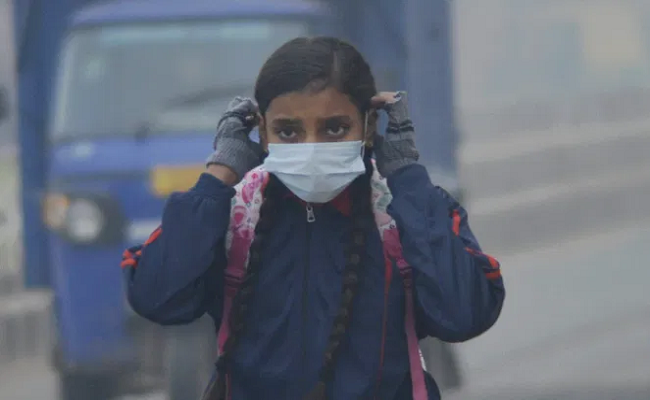.gif)
.gif)

The dramatic rise in cold and flu cases in India has become a major cause for concern. Researchers at the Indian Council of Medical Research (ICMR) have found a link between cases of fever and prolonged bouts of coughing with influenza A subtype H3N2. While these cases are raging in the country, COVID-19 is also back with a gradual increase in cases. According to data from the Department of Health, daily Covid cases continue to rise and active cases have climbed above 3,800 across the country.
According to reports, there has been a 20% increase in flu cases in the last two months. However, the ICMR recently issued a report stating that the symptoms of the H3N2 virus are not related to seasonal flu. While the seasonal flu usually lasts five to seven days, the flu symptoms currently occurring are mainly caused by the H3N2 subtype influenza A virus.
The ICMR has previously confirmed that the symptoms of the H3N2 virus are not related to seasonal flu. The Indian Medical Association recently recommended that doctors and general practitioners across the country avoid prescribing antibiotics to patients for seasonal fever, cold and cough amid rising cases of the H3N2 virus. The dramatic rise in cold and flu cases in India has become a major cause for concern. Researchers at the Indian Council of Medical Research (ICMR) have found a link between cases of fever and prolonged bouts of coughing with influenza A subtype H3N2. While these cases are raging in the country, COVID-19 is also back with a gradual increase in cases.
Dr. In a report, Samiran Panda, an eminent scientist from the Indian Council of Medical Research (ICMR), said, “As winter is passing away and summer is yet to arrive in full force, an increase in respiratory diseases is expected. However, current observations suggest that bacterial infections are also increasing in addition to viral infections. Investigations suggest that some of the reported respiratory infections in India were caused by the H3N2 virus.
According to Dr Panda, there is no need to panic, but people who are elderly or have co-morbidities such as diabetes, hypertension and heart disease need to be extra careful. He advised following all relevant Covid SOPs such as avoiding crowded places, wearing a mask that covers your mouth, nose and chin and maintaining good hygiene.